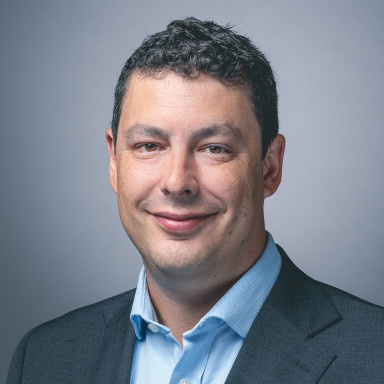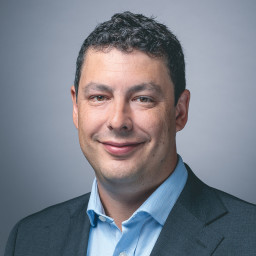This fund is focused on investing for income, while trying to provide some shelter during wider market falls
John Stopford has built a strong track record with this fund since he took over as lead manager in 2012
We think this is a great cautious fund that could be held as part of a diversified portfolio
This fund was recently added to our Wealth Shortlist of funds chosen by our analysts for their long-term performance potential
How it fits in a portfolio
The Ninety One Diversified Income fund aims to provide an income with potential for capital growth, while limiting the ups and downs to less than half of the UK stock market. The managers don’t expect to generate much capital growth, so investors should expect the income provided to be the majority of the returns the fund will generate over time.
The fund mainly invests in bonds from around the world, but also invests in some company shares too. Much of the fund invests in developed markets, but the managers invest some money into emerging markets, which adds risk.
We consider this fund to be a step up in risk from cash, with potential for losses, but with the aims of limiting losses compared with other funds and providing a consistent income over time.
The fund could provide some stability to an investment portfolio focused on growth, or a portfolio focused on company shares. Given the focus on providing an income, it could also form part of a portfolio focused on income.
The fund has recently been added to our Wealth Shortlist of funds chosen by our analysts for their long-term performance potential.
Manager
John Stopford is Head of Multi-Asset Income at Ninety One. He joined Guinness Flight in 1993, which was later acquired by what is now Ninety One. He’s worked in a number of different roles during his tenure, including being co-Head of Fixed Income and Currency. He became manager on this fund in August 2012 and has implemented his investment strategy since then.
Stopford works alongside Jason Borbora-Sheen, the fund’s Co-Manager. He has 13 years’ industry experience having worked at BlackRock and Pan Asset Capital Management before he joined Ninety One in 2015. He has worked with Stopford since joining Ninety One and became a Co-Manager on this fund in 2019.
Both managers’ sole focus is multi-asset income funds. The pair work together across the whole fund however Stopford tends to focus more on fixed income with Borbora-Sheen leading more on the shares part of the fund.
They make significant use of the wider analyst team at Ninety One, both within the multi-asset team and across the equity and fixed income parts of the business.
We have a positive view of both managers, however given the fund’s focus on fixed income and Stopford’s significant experience in this area, our conviction in this fund is based on his continued involvement in the fund.
Process
The fund mainly invests in bonds, but also invests in shares and investment trusts. It’s part of the IA Mixed Investment 0-35% sector, which means the amount invested in shares can’t go above 35%.
Ninety One’s investment approach is underpinned by its three ‘Compelling Forces’ which the managers believe drive asset returns over time. These are:
Valuation – is the investment cheap?
Fundamentals – do the facts underlying the investment support its case?
Market price behaviour – are investors buying it, or likely to start?
This framework is applied consistently across all asset classes with each investment scored across these three metrics. The aim is to only invest in things that score well on all three metrics.
At the same time, the managers place all investments into one of three buckets of Growth, Defensive and Uncorrelated. This helps them think about overall positioning for the fund. It also helps them make sure that the fund isn’t taking too much risk.
The growth bucket is likely to do best during periods of stock market and economic growth. It’s made up of the riskier investments in the fund, such as shares, high yield bonds and emerging market bonds. All of these parts of the fund add risk.
The defensive bucket is likely to do best when stock markets wobble and economies are struggling. It’s mainly made up of investments in government bonds and high quality corporate bonds.
The uncorrelated bucket is usually the smallest bucket in the fund and is made up of investments that are expected to have more consistent returns over time, such as infrastructure (which can include things like hospitals, roads or windfarms).
The managers adjust the amount invested in each bucket depending on their view of the world. When they’re more positive about economic growth, they’re likely to increase their investments in the growth bucket. The opposite is true when they’re more concerned about markets and the economy.
At the end of July 2024, the fund had 55.7% invested in developed markets government bonds, 20.0% in emerging market government bonds, 10.2% in shares and 6.5% in investment grade corporate bonds. The fund also invests in derivatives which adds risk.
The fund had a duration of 4.1 years at the end of July 2024. Duration is a measure of how sensitive an investment is to interest rate changes and is measured in years. The lower the level of duration, the less sensitive the investment is to interest rates. While 4.1 years is a relatively high duration level for this fund, it’s low compared to many bond funds. Given the managers aim to limit the ups and downs in this fund’s value, we usually expect duration to be low compared to bond funds.
Culture
Ninety One is a dual listed business, featuring on the London Stock Exchange and the Johannesburg Stock Exchange. It was established in 1991 in South Africa and demerged from Investec in March 2020, so is now a standalone business.
Investment teams work together closely, creating a collegiate environment where challenge and debate is encouraged. Portfolio managers are rewarded based on the performance of the funds they are responsible for, with a portion of their variable remuneration invested into the funds they manage. This helps to align their interests with investors.
ESG Integration
Ninety One's South African heritage gives the firm a distinct perspective on the challenges of sustainability in emerging markets, and what a robust approach to Environmental, Social and Governance (ESG) Integration should look like. The firm's ESG journey started over a decade ago, when the aim was to build awareness, and a common understanding, of ESG across the business.
In more recent years, Ninety One fully integrated ESG Analysis across all investment teams, who are supported by the central Sustainability team. We like this approach, because it means the investment team is held accountable for the ESG risks they take on, and ESG is fully integrated across the team. The exact approach to ESG integration differs from fund to fund, reflecting the regional challenges and context.
We've followed Ninety One's progress on ESG integration for several years and met several members of the firm's ESG team along the way. We believe they're of high calibre, and that the team takes a robust approach.
The firm provides an annual Sustainability and Stewardship report, complete with its views on various sustainability-related topics and engagement case studies, as well as regular thought leadership articles available via its website. It also provides a comprehensive proxy voting search tool which allows users to search for voting results on a fund-by-fund, or a company-by-company basis. Rationales are provided where the firm votes against management.
While we think Ninety One do a good job of assessing investment risk through an ESG lens and this fund doesn’t invest in the shares of companies that make significant revenues from oil or tobacco, it is not a responsible or sustainable fund. The fund can invest in the bonds of oil companies with the view that carbon transitions play out over a longer timeline. As it isn’t specifically a responsible or sustainable fund, it can also invest in companies from other industries such as alcohol or gambling.
Cost
This fund is available at an annual ongoing fund charge of 0.79%. The HL account charge of up to 0.45% per year also applies, except in the HL Junior ISA where no account charge applies.
Please note that the fund takes charges from capital. This can increase the amount of income paid but reduces the potential for capital growth.
Performance
Stopford’s long-term performance track record since he took over running this fund in August 2012 has been good versus peers. Over this time the fund has returned 52.33%*, outperforming the IA Mixed Investment 0-35% shares sector, which returned 43.05%*. Past performance is not a guide to future returns.
Compared to investing only in shares, the returns have been low. This is expected given how the managers invest and their philosophy of providing an income while trying to protect investors from losses. It also means there have been fewer losses during tough times.
The focus on investing in bonds means that performance of this fund is most impacted by wider bond market performance. For example, the fund lost 5.47%* during 2022 when bond markets went through a large correction and lost value. This compares to UK government bonds losses of 23.83%* in 2022 and the IA Mixed Investment 0-35% sector average return of -10.93%*. The fund provided investors with some much needed shelter from larger losses, emphasising the benefits that a fund like this can provide within a diversified portfolio.
Over the 12 months to the end of August 2024, the fund returned 7.44%*, which is lower than the IA Mixed Investment 0-35% sector return of 9.17%*. Having a small amount invested in shares has held back returns, as stock markets have continued to march upwards over the period. The manager also invested in some infrastructure investment trusts towards the end of 2023, but the sector has struggled so far in 2024. This is a short period to measure performance and the team continue to have conviction in these investments over the longer-term.
The largest contributor to performance over the period was developed market government bonds. This is largely as expected given the fund has had more invested in developed market government bonds than any other asset class. Shares also added notably to returns over the 12 months, even though the amount invested there has been lower than historically for the fund.
Over the long term we expect the majority of returns to come from the income provided. The fund is likely to lag strongly rising markets, in particular stock markets. But it’s also likely to provide some shelter during market falls and shocks.
At the end of July 2024, the fund had a yield of 5.16%. Please note that yields are not guaranteed and could fall as well as rise over time.
Annual percentage growth
31/08/2019 To 31/08/2020 | 31/08/2020 To 31/08/2021 | 31/08/2021 To 31/08/2022 | 31/08/2022 To 31/08/2023 | 31/08/2023 To 31/08/2024 | |
|---|---|---|---|---|---|
Ninety One Diversified Income | 2.89% | 5.79% | -6.46% | 3.04% | 7.44% |
IA Mixed Investment 0-35% | 0.44% | 7.48% | -8.91% | -1.43% | 9.17% |
The fund may invest more than 35% in securities issued or guaranteed by a permitted sovereign entity as defined in the fund’s Prospectus.


